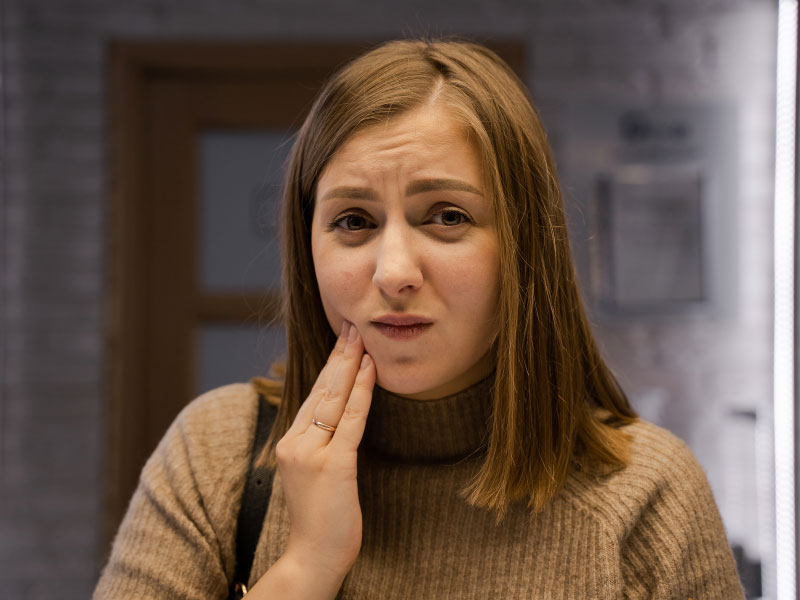All About Bruxism: Are you a Tooth Grinder?

Do you find yourself waking up with a headache or sore jaw? Or perhaps the dental hygienist has questioned whether you clench your teeth at night? Signs of clenching and grinding teeth are something we see commonly in the dental chair that can cause a negative impact on a person’s dental and overall health. Our team at Spokane Dental team is equipped to help alleviate the problem of clenching and grinding as well as the symptoms that stem from it.
Signs and Symptoms
It is very possible you may be clenching your jaw or grinding your teeth at night (or even during the day!) without even realizing it. Some signs are very subtle such as gum recession, or extra wear on the teeth. Other signs of clenching may be more obvious like your spouse telling you that you are grinding your teeth all night, or your jaw muscles being extra sore in the morning. Either way, we can help you identify whether you suffer from bruxism (the official dental term for grinding your teeth) and help you fix it, leading to a better quality of life.
Sleep Apnea and Bruxism
Bruxism can be a sign of an underlying sleep disorder, such as sleep apnea. This is something to both speak with Dr. Smith as well as your primary physician about in order to diagnose sleep apnea. Clenching your teeth at night could be a sign that you are struggling for air and suffering from sleep apnea. Sleep apnea not only affects your sleep poorly, but your general health as well. This sleep disorder is related to heart conditions. Sleep apnea causes more stress on the heart, and poor sleep affects every system in the body. That is why it is so important to identify the cause of clenching or grinding your teeth and why we take oral health problems so seriously at Spokane Dental: the whole body is connected and has to work together for full health.
The dental effects of grinding your teeth are not limited solely to signs of wear on the biting surface of the teeth. The gums and bone surrounding your teeth, called the peridontium, are affected by grinding also. Signs of clenching that we can see from a clinical perspective often show gum and bone recession, which compromises the longevity of your teeth.
Treatment Options
Fortunately, there are options to help you stop grinding your teeth! The best and most straightforward option is a mouthguard you wear while you sleep. A night guard protects your teeth from grinding together and provides a softer surface to bite down on. Because we can’t train you to simply stop grinding your teeth at night (wouldn’t that be easy?), we must protect the body from the damage of clenching your jaw. A night guard does just that and will lessen the effects of clenching on the peridontium, saving the teeth and gums.
It is important to get a custom fit night guard, which we can do for you right in the office at Spokane Dental. An ill-fitting night guard comes with problems of its own, and could wreak havoc on your joint and muscles, causing you to wake up even more sore. Our goal is always to increase your quality of life, which means better sleep, and healthier teeth and gums!
If sleep apnea is the culprit, we will work alongside your primary care physician to recommend the right tools to help you treat sleep apnea and consequently stop the bruxism in the process.
If you would like help addressing your bruxism, call us today at 509-466-2373. We offer dental services for the whole family and will get you on the road to a healthier smile in no time!


Please login to publish a comment.
Comments (0)